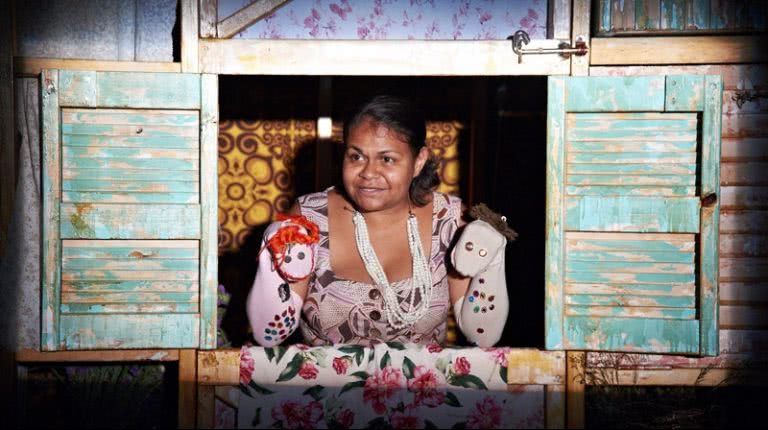When I talk to Ursula Yovich, she is wandering through a shopping mall and the sounds of screaming children is, at first, kind of amusing. That quickly sours as one child in particular seems to be stuck on an endless wailing loop, and amusement cycles through distraction, annoyance, until finally reaching a point of fascinated fear; just how long can this kid hold his breath? What is he screaming at? The answer may possibly lie with Yovich herself, poised as she is to inhabit some rather dark reinterpretations of overlooked fairytale figures inThe Magic Hour.
The notion of fractured fairytales – taking a classic story and twisting it in some new and unexpected fashion – is a familiar one. There have been several prominent forays into the field – Angela Carter’s The Bloody Chamber springs to mind – but the majority tend to focus on the ridiculous and absurd. Not so The Magic Hour, which, though not without humour, is very much an adult retelling.
“It’s such a natural thing to find yourself sitting around at home and one of your friends begins telling a scary story,” Yovich says. “Soon everyone starts to jump in and tell their own strange experiences, and you find yourself getting dragged in. Even though you’re terrified, you still want to hear more. I’m not sure what the draw is exactly, but that’s what The Magic Hour is. Even the title is somewhat ominous; the twilight hour, the witching hour. There’s an anticipation of what’s about to happen.”
That anticipation will be running high throughout the production, as even though audiences will be familiar with much of the source material – Cinderella, Rapunzel and the like – they will experience the stories from the perspective of characters who have been largely overlooked; characters who tend to have a very different interpretation of what these stories are about. Cinderella’s stepsister. Rapunzel’s elderly captor.
“I don’t think there’s too much of the original there,” says Yovich. “These stories are told through the eyes of other characters, so it’s very much their version of events. You kind of get a reminder of what the story is, but I think what it’s really about are the voices that never get heard, that are finally getting an outlet. You’ll come across these kind of characters in everyday life. They’re very real, they’re very much set in our present time and in our country. They are the forgotten voices, and [playwright] Vanessa Bates has written these characters so beautifully, they’re completely full of flaws and have a lot of humour, a lot of sadness and anger. They’re very complex. I think that’s the thing that has been injected into the story, while trying to keep the moral of the original still present.
“Even though it has an urban setting, there’s still a kind of magic, an unknown quality to this piece that I really loved. Vanessa Bates has such an amazing style and rhythm in her writing; I was just really fortunate to be around at the right time to have the chance to play these roles. The allure was that they are really complex characters. One of the things that I find myself falling into are a lot of stereotyped roles, and I got a bit tired. I felt I wasn’t getting the chance to stretch myself as a performer; I wasn’t going to learn anything new always doing the same thing. So when this came up, it felt like something really different, to be able to have these wonderfully chunky roles, to have characters of this calibre…” She laughs. “There was no way I wasn’t going to do it!”
The Magic Hour hits Sydney’s west at the Riverside Theatre in Parramatta, showing from Thursday June 26 to Saturday June 28.



































